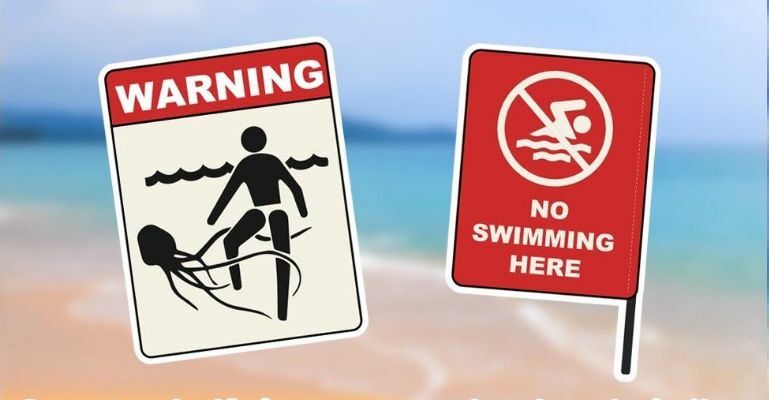TAT says it’s the season for venemous jellyfish in Thailand

After thousands of “fire jellyfish” washed up on the shores of Krabi’s Bok Khorani National Park earlier this week, Thailand’s tourism authorities are warning of more venomous jellyfish to come. On Facebook, the Tourism Authority of Thailand has urged swimmers and snorkelers not to take any risks on beaches where jellyfish warning sings have been posted.
TAT acknowledged that it’s “extremely rare” for swimmers to be stung, it cautioned beachgoers to be aware that jellyfish are present, particularly in Thailand’s south, due to the “season of venomous jellyfish”.
After the fire jellyfish scare in Krabi earlier this week, the head of the national park warned that fire jellyfish are very venomous, and getting stung by one causes severe burning pain, or even death in cases which produce a severe allergic reaction. Morbakka fenneri, known as the “fire jellyfish,” doesn’t get its name from its pinkish-red colour but from its potent sting.
If you get stung by a fire jellyfish, the best thing to do is immediately pour vinegar onto the affected area. Read our article on preventing and treating box jellyfish stings here.
Last year, a 9 year old Israeli boy was killed by a jellyfish sting in Koh Pha Ngan. The family had been spending a day at Haad Rin beach on the southeast side of the island, when a box jellyfish stung the boy. The box jellyfish is said to be one of the world’s most deadly creatures. It can be found all year in the Gulf of Thailand and the Andaman Sea, but the venomous jellyfish are most prevalent from July to October, according to Sophon Golden of the Department of Marine and Coastal Resources.
SOURCE: The Phuket Express
Latest Thailand News
Follow The Thaiger on Google News:
























